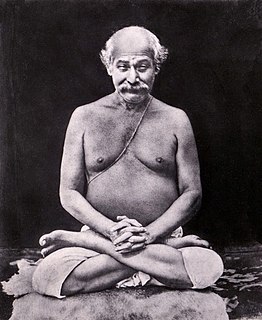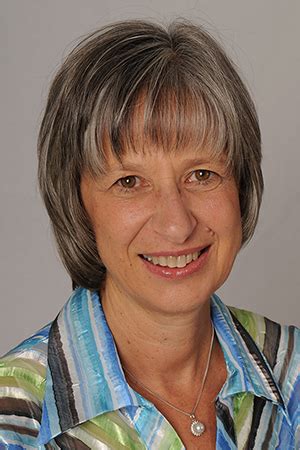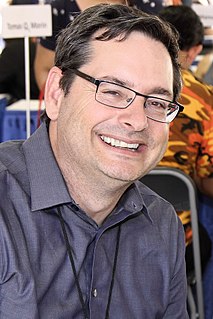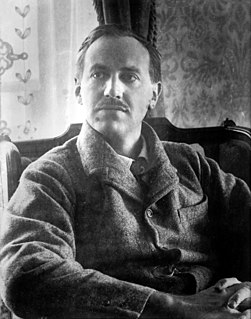A Quote by James Rollins
Throughout history, knowledge rises and falls, ebbs and flows. What once was known is forgotten again, lost in time, sometimes for centuries, only to be rediscovered ages later.
Related Quotes
Truly it has been said that there is nothing new under the sun,
for knowledge is revealed and is submerged again, even as a nation rises and falls.
Here is a system, tested throughout the ages, but lost again and again by ignorance or prejudice,
in the same way that great nations have risen and fallen
and been lost to history beneath the desert sands and in the ocean depths.
When you're lost in those woods, it sometimes takes you a while to realize that you are lost. For the longest time, you can convince yourself that you've just wandered off the path, that you'll find your way back to the trailhead any moment now. Then night falls again and again, and you still have no idea where you are, and it's time to admit that you have bewildered yourself so far off the path that you don't even know from which direction the sun rises anymore.
I toyed briefly with an image someone once mentioned to me, of a village in the shadow of a twin-peaked mountain. In the morning the sun rises. At lunch it sets behind the mountain. In the early afternoon it rises once more. The cocks crow for the second time, and later the sun sets again. No. One peak. Metaphors should not be belaboured.
We're living in a Dark Age of macroeconomics. Remember, what defined the Dark Ages wasn’t the fact that they were primitive — the Bronze Age was primitive, too. What made the Dark Ages dark was the fact that so much knowledge had been lost, that so much known to the Greeks and Romans had been forgotten by the barbarian kingdoms that followed.
Kriya is an ancient science,” Yogananda writes. Mahavatar Babaji rediscovered and clarified the technique after it had been lost in the Dark Ages. Babaji revealed to Lahiri Mahasaya: “The Kriya Yoga which I am giving to the world through you in this nineteenth century is a revival of the same science which Krishna gave, millenniums ago, to Arjuna, and which was later known to Patanjali, and to Christ, St. John, St. Paul, and other disciples.
There are only two possible forms of control: one internal and the other external; religious control and political control. They are of such a nature that when the religious barometer rises, the barometer of [external, i.e., political control] falls and likewise, when the religious barometer falls, the political barometer, that is political control and tyranny, rises. That is the law of humanity, a law of history. If civilized man falls into disbelief and immorality, the way is prepared for some gigantic and colossal tyrant, universal and immense.
Spiritual leaders teach that waking up is a process, that it doesn't just happen once and for all, but must occur again and again when we realize we have forgotten the miracle of being alive, and in recognizing our forgetfulness, we wake to the miracle once again. In the moments we are awake to the wonder of simply being alive, gratitude flows, no matter our circumstances.
Books are faithful repositories, which may be awhile neglected or forgotten; but when they are opened again, will again impart their instruction: memory, once interrupted, is not to be recalled. Written learning is a fixed luminary, which, after the cloud that had hidden it has passed away, is again bright in its proper station. Tradition is but a meteor, which, if once it falls, cannot be rekindled.
But in fact as knowledge expands globally it is being lost locally. This is the paramount truth of the modern history of rural places everywhere in the world. And it is the gravest problem of land use: Modern humans typically are using places whose nature they have never known and whose history they have forgotten; thus ignorant, they almost necessarily abuse what they use.
I want to stay in the writing long enough to become a falling star of the up-and-coming genre, then a has-been known only by collectors, and finally a rediscovered artist who is finally recognized as a creative giant misunderstood in his own time. Then forgotten again. But if I get removed from the list, it'll probably be because there are just too many damn good writers out there, and any poll of some assortment of editors is going to come up with an equally valid, equally varied list.
And little he knew of the things that ink may do, how it can mark a dead man's thought for the wonder of later years, and tell of happening that are gone clean away, and be a voice for us out of the dark of time, and save many a fragile thing from the pounding of heavy ages; or carry to us, over the rolling centuries, even a song from lips long dead on forgotten hills.


































